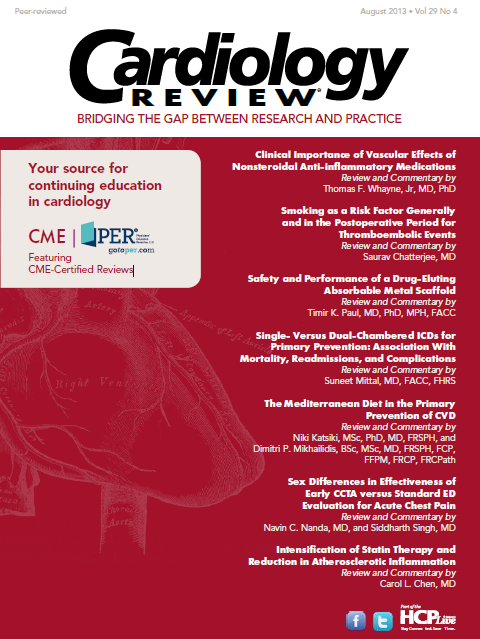Publication
Article
Cardiology Review® Online
What Your Patients Are Reading
Are Stents Overused?
—
—
The recent news reports about former President George W. Bush’s angioplasty has refocused attention on the procedure and whether it is appropriately used. Although more than half a million Americans get stents each year, studies suggest that many are implanted in patients who may, in fact, get little benefit from them. Two of the country’s largest medical organizations the American Medical Association (AMA) and the Joint Commission identified percutaneous coronary intervention (PCI) as 1 of 5 highly overused medical interventions.
The report, “Proceedings from the National Summit on Overuse,” focused only on elective procedures performed on patients with stable coronary artery disease (CAD). Studies have shown that in this group of patients, stents are generally no better at preventing myocardial infarction or early death than taking medication alone. The report concluded that approximately one-tenth of elective angioplasty procedures nationwide are “inappropriate” and another third of the procedures are “questionable.” Costs of the procedure are high, and a panel member noted that while major complications are not very common, when they do occur they can be catastrophic.
While many patients regard CAD as a “plumbing” problem not unlike a clogged drain, Michael B. Rothenberg, MD, of the Cleveland Clinic says the problem is more akin to the whole pipe needing to be cleaned out. “They’re just going into one small area where there is a stenosis, but the rest of the artery could be full of inflammation and other plaques,” he says. Rothenberg’s recent study found a majority of patients believe that PCI is going to prevent future heart attacks, even though their cardiologists did not expect that outcome.






